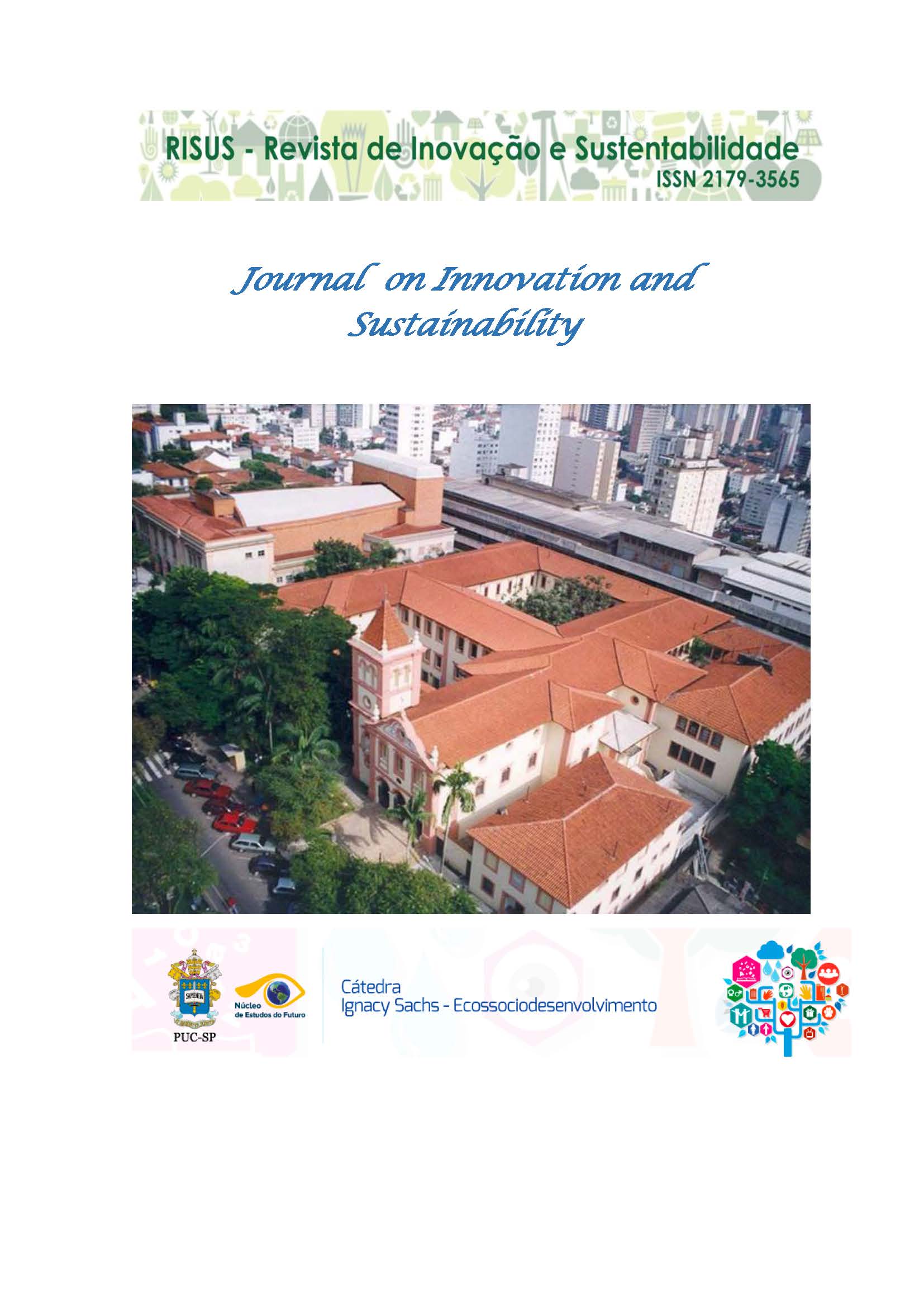Impact of reverse innovation on global competitiveness of MNCS: the moderating role of understanding latent customer needs in developed markets
DOI:
https://doi.org/10.23925/2179-3565.2023v14i3p151-165Palavras-chave:
Mercados Desenvolvidos, Estratégia Global, Inovação Reversa (RI), Corporação Multinacional (MNC), Mínimos Quadrados Parciais (PLS)Resumo
A inovação reversa (RI) é a adoção de uma invenção em uma economia empobrecida que segue para países mais ricos. A inovação reversa também se tornou uma estratégia de crescimento totalmente nova para as Corporações Multinacionais (MNCs) para impulsionar a inovação nos mercados em desenvolvimento e utilizar ainda mais o lucro potencial de certos desenvolvimentos, apresentando, consequentemente, inovação não apenas em outros segmentos de mercado, mas também nas economias desenvolvidas, proporcionando Multinacionais com desenvolvimento global sustentado. Estudos de inovação reversa podem ser conduzidos ampliando ideias anteriores sobre inovação, internacionalização e gestão de multinacionais. Assim, este estudo analisa o impacto da Inovação Reversa na competitividade global das EMNs. Este estudo é único porque tenta estudar o papel moderador da compreensão das necessidades latentes dos clientes nos mercados desenvolvidos. O Smart PLS foi utilizado para analisar o impacto da Inovação Reversa. O banco de dados utilizado nesta análise concentra-se principalmente no mercado da Siemens, com entrevistas e informações fornecidas por clientes empresariais devido ao seu sucesso demonstrado, bem como ao alto nível de adoção nas economias emergentes. A técnica PLS-SEM foi escolhida como ferramenta de análise primária por ser uma técnica baseada em variância. A sua análise concluiu que o desempenho nos mercados emergentes requer localização ponta a ponta, descoberta de valor central e uma combinação equilibrada de portfólio de ambos os tipos de inovação.
Referências
Adomako, S., Amankwah-Amoah, J., & Frimpong, K. (2022). Human capital, reverse engineering and new venture growth: The moderating role of competitive strategy. Technovation, 114, 102520.
Chandler, G. N. (1996). Business Similarity as a Moderator of the Relationship between Pre-Ownership Experience and Venture Performance. Entrepreneurship Theory and Practice, 20(3), 51–65. https://doi.org/10.1177/10422587960200030
Dudaklı, N., Felekoğlu, B., & Baykasoğlu, A. (2021). Building blocks of the reverse innovation process. Innovation: The European Journal of Social Science Research, 1–28. https://doi.org/10.1080/13511610.2021.1925527
Genc, E., Dayan, M., & Genc, O. F. (2019). The impact of SME internationalization on innovation: The mediating role of market and entrepreneurial orientation. Industrial Marketing Management, 82, 253-264.
Golgeci, I., Assadinia, S., Kuivalainen, O., & Larimo, J. (2019). Emerging-market firms’ dynamic capabilities and international performance: The moderating role of institutional development and distance. International Business Review, 28(6), 101593 https://doi.org/10.1016/j.ibusrev.2019.10159.
Hukkelberg, S., Keles, S., Ogden, T., & Hammerstrøm, K. T. (2019). The relation between behavioral problems and social competence: A correlational Meta-analysis. BMC Psychiatry, 19(1). https://doi.org/10.1186/s12888-019-2343-9
Islam, T., Islam, R., Pitafi, A. H., Xiaobei, L., Rehmani, M., Irfan, M., & Mubarak, M. (2021). The impact of corporate social responsibility on customer loyalty: The mediating role of corporate reputation, customer satisfaction, and trust. Sustainable Production and Consumption, 25, 123–135. https://doi.org/10.1016/j.spc.2020.07.019
MacKenzie, S. B., Podsakoff, P. M., & Podsakoff, N. P. (2011). Construct measurement and validation procedures in MIS and behavioral research: Integrating new and existing techniques. MIS quarterly, 293-334.
Menguc, B., Auh, S., & Yannopoulos, P. (2014). Customer and supplier involvement in design: The moderating role of incremental and radical innovation capability. Journal of Product Innovation Management, 31(2), 313-328.
Morgan, T., Anokhin, S. A., & Wincent, J. (2019). Influence of market orientation on performance: the moderating roles of customer participation breadth and depth in new product development. Industry and Innovation, 26(9), 1103-1120.
Petzold, S., Barbat, V., Pons, F., & Zins, M. (2019). Impact of responsive and proactive market orientation on SME performance: The moderating role of economic crisis perception. Canadian Journal of Administrative Sciences, 36(4), 459–472. https://doi.org/10.1002/cjas.1514
Qayyum, A., Khang, D. B., & Krairit, D. (2013). An analysis of the antecedents of loyalty and the moderating role of customer demographics in an emerging mobile phone industry. International Journal of Emerging Markets, 8(4), 373-391.
Sarstedt, M., Ringle, C. M., & Hair, J. F. (2021). Partial least squares structural equation modeling. In Handbook of market research (pp. 587-632). Cham: Springer International Publishing. Sarstedt, M., Ringle, C. M., & Hair, J. F. (2021). Partial least squares structural equation modeling. In Handbook of market research (pp. 587-632). Cham: Springer International Publishing.
Schmidt, C. G., Yan, T., Wagner, S. M., & Lucianetti, L. (2022). Performance implications of knowledge inputs in inter-organisational new product development projects: the moderating roles of technology interdependence. International Journal of Production Research, 60(20), 6048-6071.
Senyard, J., Baker, T., Steffens, P., & Davidsson, P. (2014). Bricolage as a Path to Innovativeness for Resource-Constrained New Firms. Journal of Product Innovation Management, 31(2), 211–230. https://doi.org/10.1111/jpim.12091
Teixeira, G. F. G., & Canciglieri, O., Junior. (2019). How to make strategic planning for corporate sustainability? Journal of Cleaner Production, 230, 1421–1431. https://doi.org/10.1016/j.jclepro.2019.05.063
Zeschky, M., Winterhalter, S., & Gassmann, O. (2015). From Cost to Frugal and Reverse Innovation: Mapping the Field and Implications for Global Competitiveness. Research-technology Management, 57(4), 20. https://doi.org/10.5437/08956308x5704235

Downloads
Publicado
Edição
Seção
Licença
Esta obra está licenciada sob uma licença Creative Commons Atribuição - No comercial - Sin derivaciones 4.0 Internacional
1.O(s) autor(es) autoriza(m) a publicação do artigo na revista;
2.O(s) autor(es) garante(m) que a contribuição é original e inédita e que não está em processo de avaliação em outra(s) revista(s);
3.A revista não se responsabiliza pelas opiniões, ideias e conceitos emitidos nos textos, por serem de inteira responsabilidade de seu(s) autor(es);
4.É reservado aos editores o direito de proceder ajustes textuais e de adequação do artigos às normas da publicação.
1.1 Copyright Statement
This journal is licensed under a Creative Commons Attribution-Non Commercial-No Derivers 4.0 International license.
1. The author (s) authorize the publication of the article in the journal;
2. The author (s) warrant that the contribution is original and unpublished and is not in the process of being evaluated in other journal (s);
3. The journal is not responsible for the opinions, ideas and concepts emitted in the texts, as they are the sole responsibility of its author (s);
4. The editors are entitled to make textual adjustments and to adapt the articles to the standards of publication.

